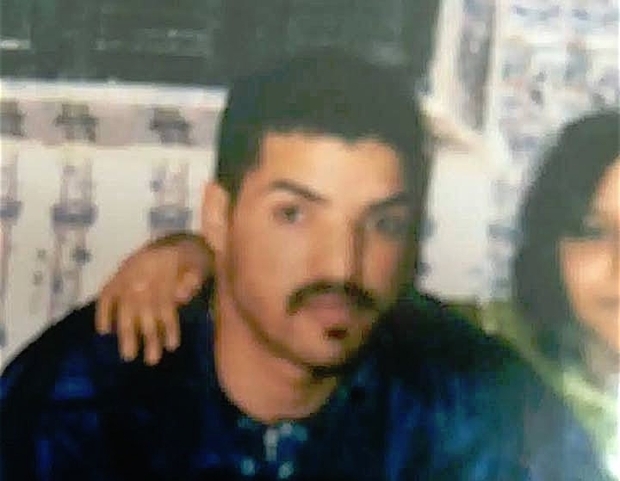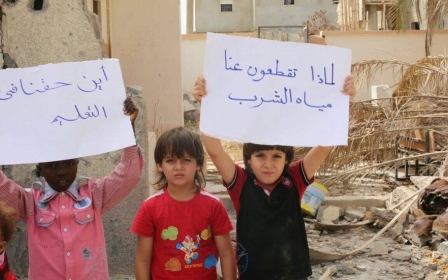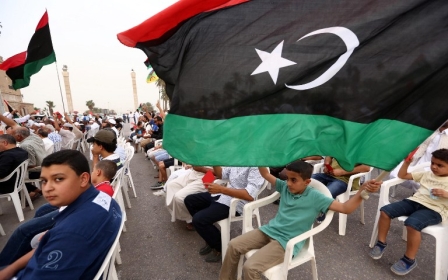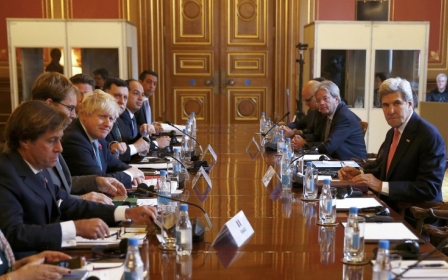EXCLUSIVE: Italy-Algeria talks, not military intervention, freed foreign captives in Libya
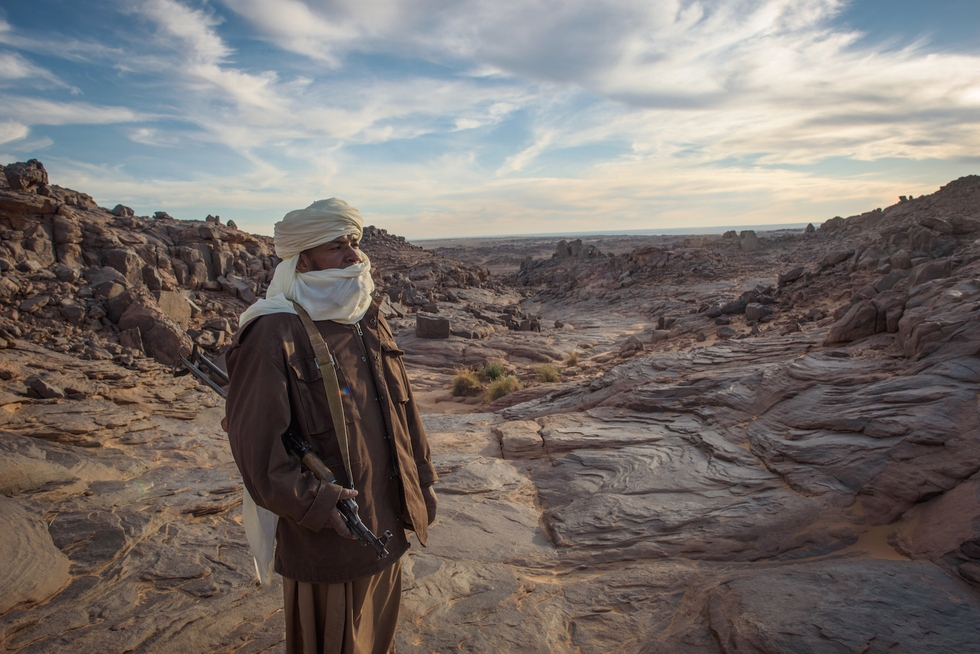
Ghat seems like a paradise setting where the wind shapes a moonscape of sandy dunes and rocks. It is a Saharan oasis in south-west Libya, just 370km by road from Djanet, another oasis that was once one of Algeria’s popular tourist spots.
In desert terms the areas are next door to each other, so much so that the Libyan side of the region has traditionally been considered as part of Algeria’s sphere of influence.
But for the Italians Danilo Calonego and Bruno Cacace, and the Canadian Frank Poccia, paradise turned into hell, as the three men were kidnapped on 19 September and held captive until their release on the night of the 4-5 November.
When the trio of engineers, who were working at Ghat airport on behalf of the Italian company Contratti Internazionali Costruzioni (CO.I.COS), were captured, total confusion reigned as to the identity of the kidnappers.
The area is frequented by smugglers, men from al-Qaeda in the Islamic Maghreb (AQIM), especially those loyal to Mokhtar Belmokhtar - the planner of the kidnappings from the Tiguentourine gas plant in Algeria in January 2013 - and also several armed groups linked to Islamic State (IS).
This week an IS emir in Libya was arrested near Illizi (Algeria) during a military operation. Abou Oubaida al-Mouhadjir, a 28-year-old Egyptian, is suspected by intelligence services of being a middleman between groups in Libya and those run by Abou al-Walid al-Sahraoui in Niger.
'Do what is necessary'
“After the kidnapping a high-ranking Italian official came to Algeria to ask the authorities to ‘do what is necessary’”, a high-placed source close to the negotiations with the Libyans explains to Middle East Eye.
Why did the Italian talk to Algerian authorities when the victims were taken in Libya? Firstly because Algerian authorities have long-established relations with Tuareg and Tabu tribes in the region. “And secondly because the planner of the kidnapping was identified quite quickly,” adds our source.
His name is Abdellah Belakahal – and he is Algerian. He is well known to the intelligence service and is considered to be one of the five biggest drug traffickers in the region.
Belakahal’s rap sheet includes convictions for roles in nine cases, including three life prison sentences. In particular, he was found guilty of being involved in the attack on 18 March against the Kherchba gas plant, Algerian’s third biggest gas field, near Ghardaia.
“It was after the attack on Kherchba that things really escalated with Belakahal,” says the security source to MEE in Algiers.
“After that attack arrest warrants were issued for his parents and wife. They were not arrested but Belakahal viewed the move as a provocation. The same goes for the death of one of his brothers in Lambèse prison in Batna (east Algeria) in mysterious circumstances a few days after the attack. The official explanation is that he was ill.”
'In his mind the plan is simple'
Another source, a civilian one, close to the negotiations adds: “In his mind the plan is simple: in order to ensure that his family can live in peace, to get his other brother – who is also in prison – released and to stop seizures of his many assets (he is a billionaire and owns petrol stations, factories, villas, farmland and so on) he has to apply pressure on Algerian authorities from Libya, where he is in hiding.
"To his way of thinking he has pulled off a major coup because he has shown to all the armed groups and smuggler barons in the region that he can kidnap foreigners.”
The only setback for Belakahal was that two of the men who took part in the kidnappings, a pair of drug smugglers, handed themselves in to Algerian authorities a few days before the hostages’ release so that they could benefit from the Charter for Peace and National Reconciliation, which grants amnesty to Islamist fighters who chose to lay down their weapons.“The two men who surrendered helped to bring about the end of the story,” says the high-ranking Algerian source. “Once Algerian authorities got confirmation that the hostages were alive and well, Belakahal’s imprisoned brother was released on probation.”
The source says that if Belakahal’s brother had been a Salafist convicted of acts of “terrorism”, Algiers would never have relented. “Because we make no concessions to Islamists,” he claims.
“It would certainly have been more complicated,” says a security source. “Basically Belakahal was just asking for his family to be left alone and for a little money. That is why negotiations were ‘quick’.”
A little money? Negotiations began at 10 million euros. “If you compare that to the 100 million euros that IS demanded for the release of James Foley, it’s not much,” says the source.
Through negotiations the parties are said to have settled on a payment of 4 million euros. There was also an outlay of the equivalent of around 1.5 million euros for Katiba El Ténéré (a Tuareg militia group close to the Libyan National Army close to the government in the East), armed Tabu groups who control the Ubrai region (an oasis close to Ghat) and who paved the way for the talks, and for the two negotiations, a pair of Tuaregs, a Libyan public figure from Ghat and an Algerian personality from In Amenas.
Pay mercenaries for their loyalty to foil AQIM
"Belakahal is a billionaire, he does not need money for himself but for the people who he hires to do the kidnapping, mercenaries who must be paid for their loyalty to ensure that they do not sell the hostages to AQIM,” says the military source. “Mokhtar Belmokhtar, who was aware of the kidnapping, did his utmost to get his hands on the three foreigners.”
Mokhtar Belmokhtar was aware of the presence of the hostages in south Libya and tried to get hold of them (AFP/HO/ANI)
According to the version given by the Libyans and reported on the day of the release by Anadolu, a Turkish news agency, the release was the result of a special forces operation commanded by the Libyan presidential council of the national unity government (NUG) with backing from the United Nations.
In Algeria, where negotiations were led, the high-ranking source cannot help smiling at this version of the story.
“A Libyan military force did intervene on orders from the NUG but its mission consisted of bringing the hostages from the place where they were released in the Ubari region to a town on the Libyan side and safeguarding them,” explains the source.
“The hostages were only released because negotiations bore fruit, not because of any military intervention,” he says.
One big question that remains is: what will become of Belakahal? The drug trafficker is said to have asked to be allowed to benefit from the Charter for Peace and National Reconciliation to return to Algeria, a request that Algiers has so far rejected.
Middle East Eye propose une couverture et une analyse indépendantes et incomparables du Moyen-Orient, de l’Afrique du Nord et d’autres régions du monde. Pour en savoir plus sur la reprise de ce contenu et les frais qui s’appliquent, veuillez remplir ce formulaire [en anglais]. Pour en savoir plus sur MEE, cliquez ici [en anglais].


